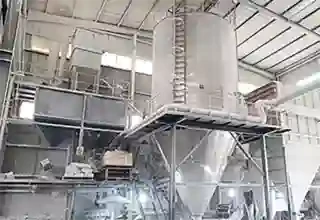
propyl methyl cellulose
Understanding Propyl Methyl Cellulose A Versatile Polymer in Modern Applications
Propyl methyl cellulose (PMC) is a cellulose-derived polymer that has garnered significant attention in various industries due to its unique properties. As a derivative of cellulose, a natural polymer found in the cell walls of plants, PMC exhibits a wide range of functional characteristics that make it suitable for numerous applications, particularly in food, pharmaceuticals, and construction. This article explores the chemical composition, properties, applications, and future prospects of propyl methyl cellulose.
Chemical Composition and Properties
Propyl methyl cellulose is synthesized through the chemical modification of cellulose, replacing hydroxyl groups with propoxy and methoxy groups. The degree of substitution of these groups determines the physical and chemical properties of the resulting polymer. PMC is known for its solubility in water, forming a gel-like consistency that can be manipulated based on the concentration used. Additionally, it is non-ionic, making it compatible with various other substances, including electrolytes, which enhances its versatility in formulations.
One of the most significant properties of PMC is its thermal stability. Unlike many other polymers, PMC can withstand high temperatures without degrading, which is particularly beneficial in processes that require heating. It also exhibits excellent film-forming capabilities, allowing it to create barriers that can improve oxygen and moisture resistance. Moreover, PMC functions as a thickening, binding, and emulsifying agent, making it valuable in a multitude of industries.
Applications in Different Industries
1. Food Industry
In the food industry, propyl methyl cellulose is widely used as a food additive. It serves as a thickening agent and stabilizer in sauces, dressings, and ice creams, enhancing texture while maintaining product integrity. Its ability to retain moisture makes it vital in baked goods, where it helps maintain freshness and shelf life. Additionally, PMC is often used in vegetarian and vegan products as a substitute for gelatin, providing similar textural properties in gel-like formulations.
propyl methyl cellulose

PMC plays a crucial role in the pharmaceutical industry, particularly in drug formulation and delivery systems. It is used as a binder in tablet formulations and enhances the controlled release of active ingredients. Its biocompatibility and safety make it an ideal choice for various pharmaceutical products, including ointments and creams. Moreover, its water-retaining properties are beneficial for topical applications, providing hydration to the skin and assisting in the drug delivery mechanism.
3. Construction and Building Materials
In construction, propyl methyl cellulose is utilized in various building materials, such as tile adhesives, wall putty, and joint compounds. Its ability to hold water and improve workability contributes to the performance and durability of these materials. PMC allows for easy application and enhances adhesion properties, which is essential for achieving robust and long-lasting construction solutions.
4. Personal Care Products
The cosmetics and personal care industry also benefits from the properties of PMC, where it is commonly found in lotions, creams, and shampoos. Its thickening abilities, combined with its smooth texture, enhance the usability and feel of personal care products. Furthermore, PMC acts as a stabilizer in emulsions, ensuring uniform distribution of ingredients, which is vital for product efficacy and consumer satisfaction.
Future Prospects
The future of propyl methyl cellulose looks promising as industries continue to seek innovative solutions that are both effective and sustainable. With increasing consumer demand for natural and plant-based products, the development of cellulose derivatives like PMC aligns with these trends. The ongoing research into enhancing the properties of PMC and exploring new applications in biodegradable packaging and eco-friendly products could further solidify its place in modern technology.
Conclusion
Propyl methyl cellulose is a versatile and essential polymer that bridges the gap between natural materials and modern applications. Its diverse properties make it invaluable across multiple industries, from food to pharmaceuticals and construction. As research and development continue, the potential for PMC to contribute to sustainable and innovative solutions in various fields will undoubtedly expand, making it a noteworthy subject in the study of advanced materials. The future is bright for this remarkable cellulose derivative, ensuring its relevance in a rapidly evolving world.
-
MHEC Cellulose Premium Additive | Enhanced Industrial UsesNewsAug.01,2025
-
Antifoam & Defoamer Solutions | Fast Foam ControlNewsAug.01,2025
-
Hydroxyethyl Cellulose for Paint - Superior Thickening SolutionsNewsJul.31,2025
-
Low Substitution - Hydroxypropyl Cellulose for Enhanced DissolutionNewsJul.30,2025
-
High Performance Gypsum Retarder Chemical for Plaster IndustryNewsJul.30,2025
-
High-Quality VAE Powder for Construction & Adhesives SolutionsNewsJul.29,2025





















